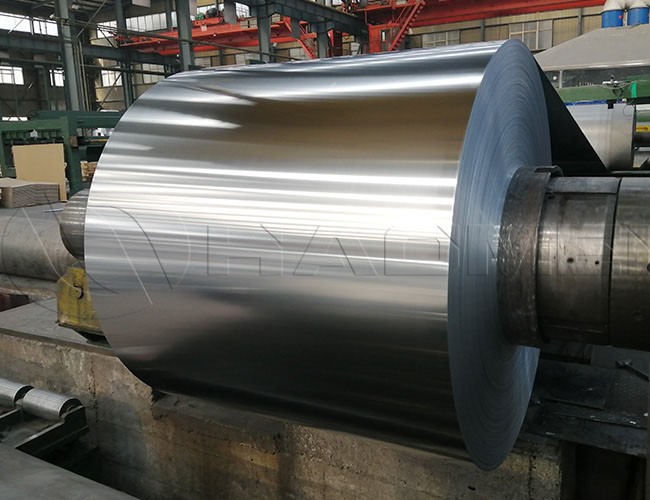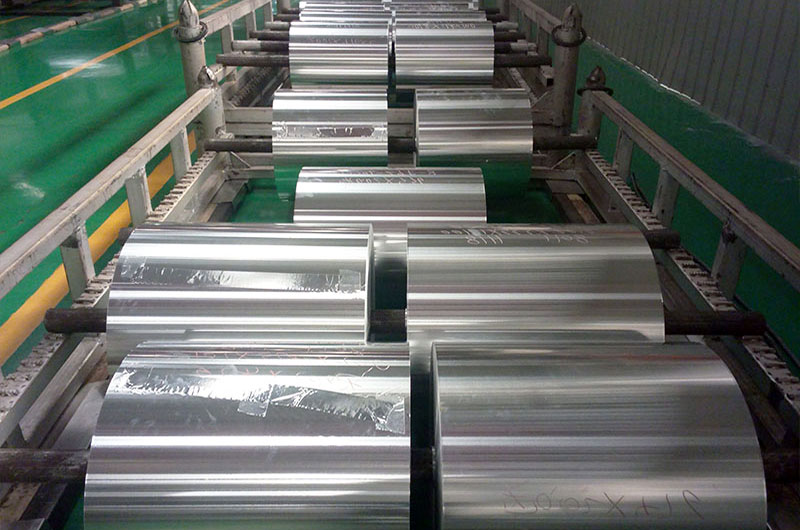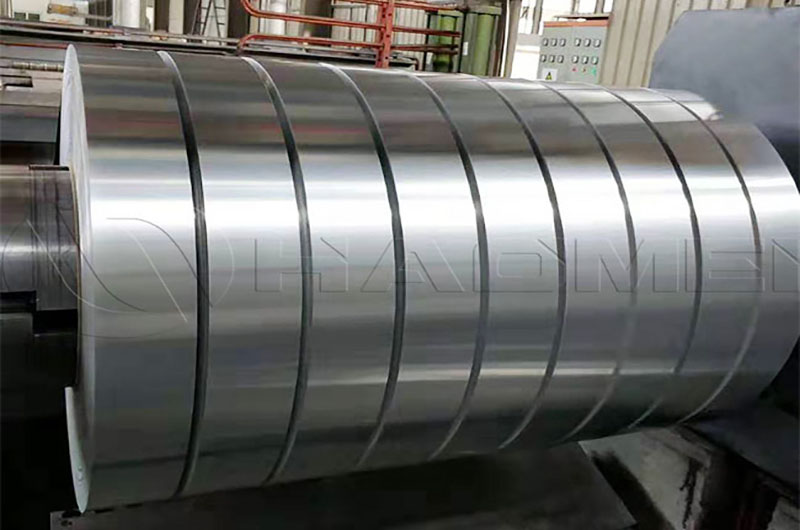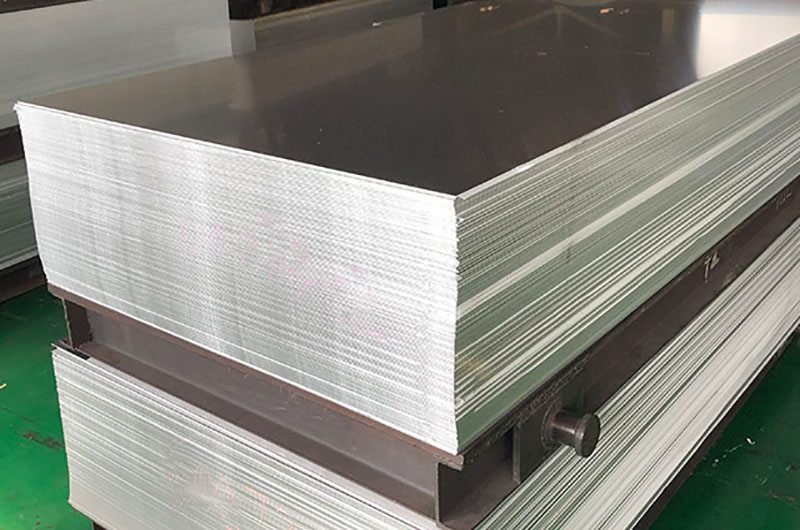- Advantages of 1050 thermal insulation aluminum coil
- Specifications of 1050 thermal insulation aluminum coil
- 1050 thermal insulation aluminum coil applications
- 1050 thermal insulation aluminum coil usually refers to a thermal insulation aluminum coil made of aluminum alloy 1050.
- Aluminum alloy 1050 is a pure aluminum alloy with good thermal and electrical conductivity.
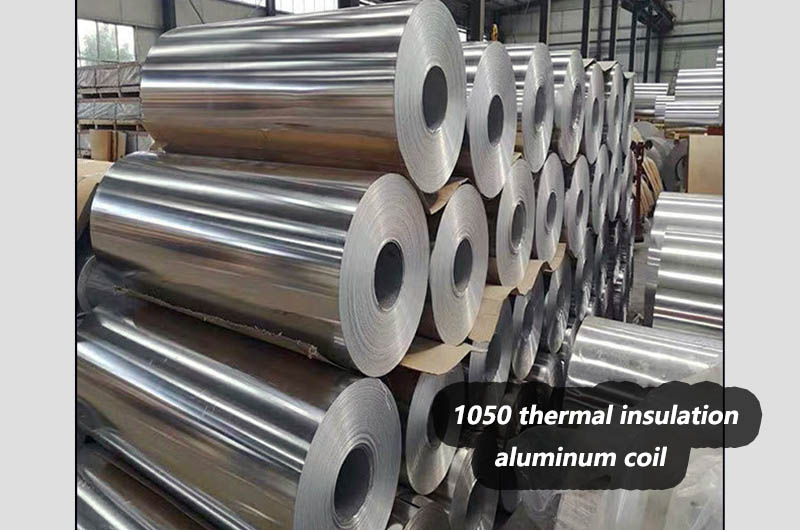
Advantages of 1050 thermal insulation aluminum coil
1050 thermal insulation aluminum coil has some advantages in thermal insulation, which make it widely used in fields such as construction, electronics and automobiles. Here are some possible advantages:
- Good thermal conductivity: Aluminum is a good thermal conductive material and can conduct heat effectively. Therefore, when 1050 aluminum coil is used as a heat dissipation material in the electronic field, it can effectively dissipate heat and contribute to the heat dissipation of electronic equipment.
- Lightweight and high strength: Aluminum is a lightweight metal that also has high strength. This allows 1050 thermal insulation aluminum coils to provide thermal insulation performance in the construction and automotive fields, while reducing the structural burden and helping to reduce the overall weight.
- Good corrosion resistance: Aluminum has good corrosion resistance and is not easily corroded by the atmosphere, water and other environments. This enables 1050 thermal insulation aluminum coils to maintain stable performance and extend service life when used outdoors.
- Strong processability: 1050 aluminum coil has good processability in the soft state (O state). It can meet the requirements of different shapes and sizes through bending, cutting and other processing processes, and is suitable for various complex construction and automobile component designs.
- Environmentally friendly and recyclable: Aluminum is a recyclable metal. Using 1050 insulated aluminum coils helps reduce resource waste and is in line with the concepts of environmental protection and sustainable development.
It is important to note that specific advantages may vary depending on the application area and specific requirements. When selecting materials, it is recommended to evaluate the advantages of 1050 thermal insulation aluminum coils based on specific needs and application scenarios.
Specifications of 1050 thermal insulation aluminum coil
The specifications and parameters of 1050 insulated aluminum coils may vary depending on the manufacturer, supplier and specific application requirements. Here are some common specifications and parameters that may be involved, but please note that this is a general reference only:
- Thickness: Usually measured in millimeters (mm), it may be between 0.2mm and 3mm. The specific thickness will depend on the usage scenario.
- Width: In millimeters, it may be between 100mm and 2000mm depending on the specific use.
- Coil Weight: Usually measured in kilograms, coil weight may vary depending on the size and thickness of the roll.
- Heat treatment state (Temper): Different heat treatment states may be used, such as O (soft state), H14, H16, etc., depending on the usage scenario and requirements.
- Coating: In some cases, aluminum coils may be coated with a special coating to improve their corrosion resistance and weather resistance.
- Thermal Conductivity: Expressed in terms of thermal conductivity (W/m·K), aluminum generally has better thermal conductivity.
- Tensile Strength: In MPa, it represents the tensile strength of aluminum coils, which may vary within a certain range.
- Environmental suitability: The applicable environment of aluminum coils, such as whether it is suitable for outdoor, high temperature or humid environments, etc.
The above parameters may be some of the key factors to consider when choosing 1050 thermal insulation aluminum coils. It is recommended to contact the aluminum coil supplier or manufacturer to obtain specific product specifications and technical data sheets before purchasing to ensure that the selected material meets actual needs.
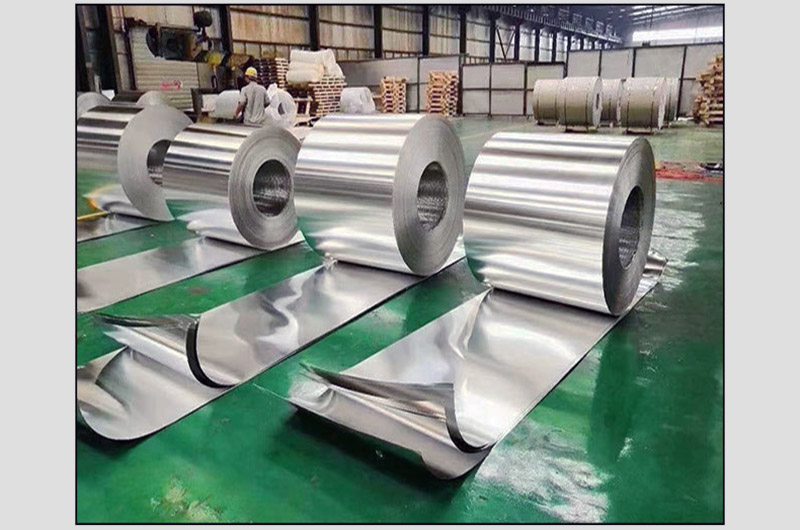
1050 thermal insulation aluminum coil applications
Thermal insulation aluminum coils are usually used in construction, electronics, automobiles and other fields. Their main function is to block or reduce the conduction of heat, thereby achieving a thermal insulation effect.
1050 Insulated Aluminum Coil may be available in certain thicknesses and widths to meet the requirements of a specific application.
1050 thermal insulation aluminum coi for construction field
In the construction field, 1050 thermal insulation aluminum coils are often used in building exterior walls, roofs and other parts to play the role of thermal insulation.
Temper (heat treatment state): In building exterior walls, roofs and other parts, 1050-O (soft state) or H14 state is usually used to ensure that the aluminum coil has sufficient flexibility and bending to adapt to the needs of the building structure.
Specifications: Specific specifications may vary according to the needs of the building, including thickness, width, etc. For example, thicknesses from 0.5mm to 3mm may be used, with the width depending on the specific application.
1050 thermal insulation aluminum coi for electronic field
In the electronic field, 1050 thermal insulation aluminum coil is used as heat dissipation material.
Temper (heat treatment state): Among electronic heat dissipation materials, 1050-O (soft state) or H state may be selected, depending on the thermal conductivity requirements.
Specifications: Specifications may vary based on thermal requirements, including thickness and width. For example, a thinner aluminum coil might be chosen to conduct heat more efficiently.
1050 thermal insulation aluminum coi for automotive field
In the automotive field, 1050 thermal insulation aluminum coils are used in automobile insulation pads and other components.
Temper (heat treatment state): In parts such as automobile insulation pads, the 1050-H18 state may be selected to obtain higher hardness and strength.
Specifications: Specifications may vary based on specific automotive component requirements, including thickness and width. For example, thicker aluminum coils may be required to provide better insulation.
The specific Temper and specification selection will depend on the specific requirements of the application, and manufacturers usually provide corresponding product specifications based on customer needs. It is recommended to contact the supplier or manufacturer to obtain exact product specifications and technical data before purchasing.
In general, 1050 thermal insulation aluminum coil is an aluminum alloy coil with good thermal conductivity and is mainly used for thermal insulation and thermal insulation applications.
Informations you may be interested in:
- 0.5mm thick 3003 anti-corrosion thermal insulation aluminum coil
- Aluminum Coil for Power Plant Insulation
- Stucco embossed aluminum coil for pipe insulation
- What precautions should be taken when applying thermal insulation aluminum coils?
- Characteristics and storage precautions of aluminum coils for thermal insulation
- What are the benefits of aluminum insulation?
- Is aluminum a good thermal insulator?

